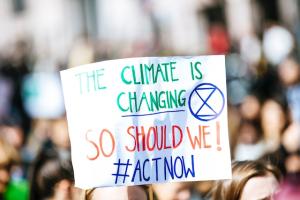
In the first Republican presidential primary debate in mid-August 2023, candidates were asked, “Do you believe human behavior is causing global warming?”
Did the moderators want helpful ideas on what to do about climate change? Methinks not. Rather than ask the question in order to facilitate a discussion on policy, they phrased it to elicit a target to blame. Candidates answered according to how they believed voters would want them to. “Climate change is a hoax,” (Ramaswamy) or “We don’t want to say what caused it.”
I couldn’t help but roll my eyes when I heard the question and its answers. Both were juvenile and reminded me of my kids when they were toddlers, quick to blame “not me” or a sibling when asked about a missing or broken object. Our presidential candidates must do better.
Do we want to assign blame for a bad situation or act responsibly toward solutions? This is the question before us. And how we answer it reveals much about the direction of our hearts.
Does a cause matter as much as a solution? Only to the extent of knowing information about the problem that might help us move in a helpful direction. Regardless, we don’t have to assume blame in order to also promote and pursue new and different human behaviors that fight against, in this case, climate change.
The exchange reminded me of a common debate in American culture: What can or should the nation do to alleviate the generational poverty of Black Americans whose ancestors were enslaved, freed, then oppressed through policy? Their descendants continue to climb out of the economic hole they were born into. Policies and laws remain on the books that disenfranchise Blacks at a disproportionate rate compared to other ethnicities.

Do white Americans, or at least the government, owe them help? The two kinds of answers I hear:
1. Rejecting blame: “We didn’t enslave Blacks even if some of our ancestors did. Why should we be blamed for what happened a 150 years ago?”
2. Accepting responsibility: “Our nation has inherited inequalites that cause our neighbors and friends to struggle. What can we do now to make the playing field level for Black Americans (and other disadvantaged groups)? Which policies can be changed, laws passed, and opportunities offered to give those who start behind the 8-ball a fighting, fair chance at success?”
What if extending help has nothing to do with who caused the original problem but rather what can make the present and future better?
Playing the blame game—in both scenarios—is merely an excuse to do nothing. If it’s not our fault, we feel no obligation to do anything about it. A mature person, and body politic, would instead learn from the past in order to take steps to improve the future. It, whatever it is, may not be our fault (or it very well may be, depending on the issue), but the future of our country is our responsibility. And people of justice, especially those who claim to follow the Justifier, should be most motivated to seek the welfare of their neighbors.
Let’s stop playing the blame game in life and start taking responsibility for leaving a better future.












